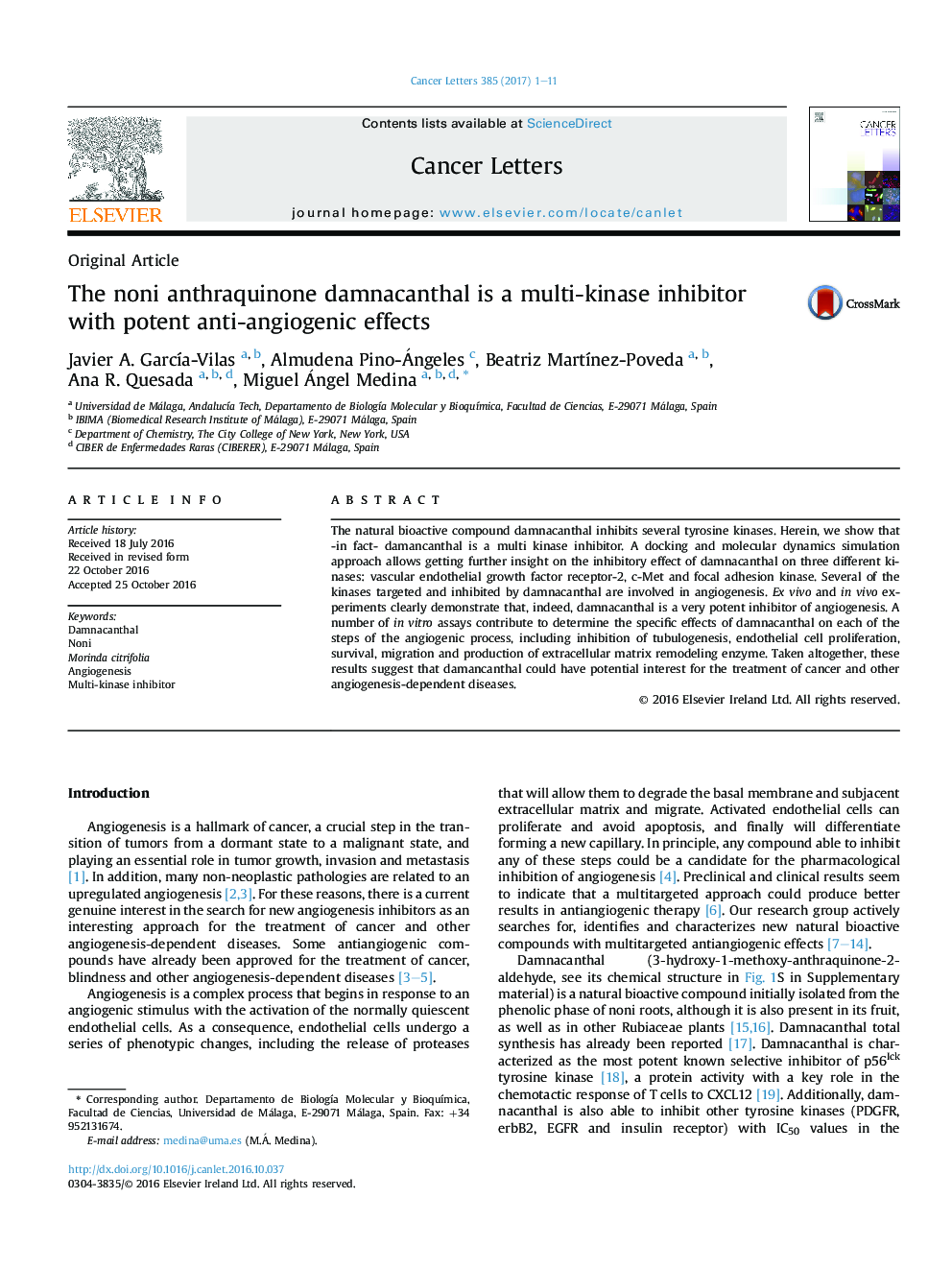| Article ID | Journal | Published Year | Pages | File Type |
|---|---|---|---|---|
| 5525708 | Cancer Letters | 2017 | 11 Pages |
â¢Damnacanthal inhibits several angiogenesis-related tyrosine kinases.â¢Docking and molecular dynamics provide insights on these inhibitory effects.â¢Damnacanthal is a very potent inhibitor of ex vivo and in vivo angiogenesis.â¢Specific effects of damnacanthal on different angiogenic process steps are shown.
The natural bioactive compound damnacanthal inhibits several tyrosine kinases. Herein, we show that -in fact- damancanthal is a multi kinase inhibitor. A docking and molecular dynamics simulation approach allows getting further insight on the inhibitory effect of damnacanthal on three different kinases: vascular endothelial growth factor receptor-2, c-Met and focal adhesion kinase. Several of the kinases targeted and inhibited by damnacanthal are involved in angiogenesis. Ex vivo and in vivo experiments clearly demonstrate that, indeed, damnacanthal is a very potent inhibitor of angiogenesis. A number of in vitro assays contribute to determine the specific effects of damnacanthal on each of the steps of the angiogenic process, including inhibition of tubulogenesis, endothelial cell proliferation, survival, migration and production of extracellular matrix remodeling enzyme. Taken altogether, these results suggest that damancanthal could have potential interest for the treatment of cancer and other angiogenesis-dependent diseases.
